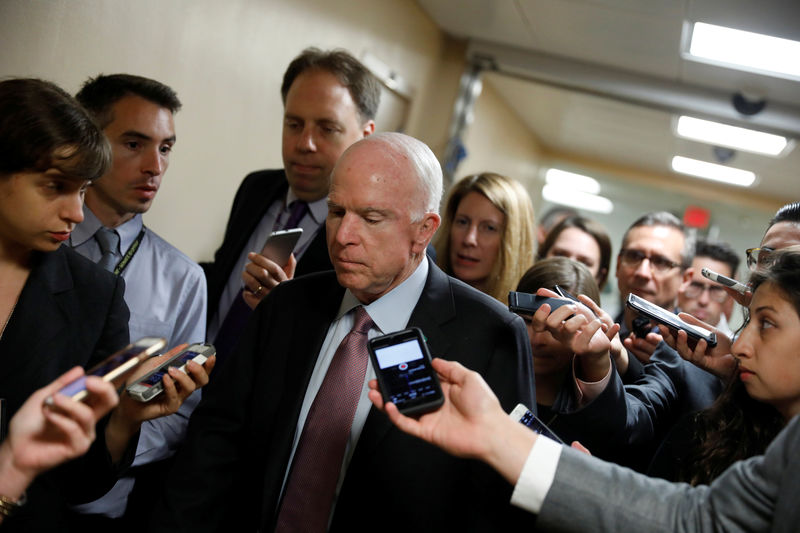By Patricia Zengerle
WASHINGTON (Reuters) - Two months after signing it, President Donald Trump has not begun enforcing a law imposing new sanctions on Russia, Iran and North Korea, Senators John McCain and Ben Cardin said in a letter seen by Reuters on Friday.
Also, with just two days to go, his administration has not provided information related to Russia's defense and intelligence sectors required under the measure by Sunday, they said.
White House officials did not respond to a request for comment on the letter from McCain, the Republican chairman of the Armed Services Committee, and Cardin, the ranking Democrat on the Foreign Relations Committee.
Later on Friday, the White House issued a presidential memorandum taking the first step toward implementation by designating different agencies to start the process putting the law into effect.
Trump grudgingly signed the "Countering America's Adversaries Through Sanctions Act" on Aug. 2 after Congress overwhelmingly approved the measure despite Trump's reservations about how it might affect his desire for improved relations with Moscow.
The White House had hedged for weeks, as the legislation worked its way through Congress, over whether the president would sign it or use his veto power. Although his fellow Republicans control Congress, it passed both the Senate and House of Representatives by near-unanimous margins large enough to override a veto.
Trump's opposition to the law had raised questions about how enthusiastically his administration would enforce it.
"Congress’ swift and united action, and your signature, sent a strong message to our allies and adversaries alike, and particularly to those such as Russia, who have sought to undermine our democracy," said the letter, dated Thursday.
"Now, as critical deadlines are approaching, it is imperative that your Administration implement the law to its fullest extent to uphold and protect American interests," it said.
The law imposed stiff new sanctions on Russia, Iran and North Korea over issues including Russia's efforts to interfere in the 2016 U.S. election, which Russia denies, as well as Iran's ballistic missiles program and North Korea's nuclear weapons development.
The administration in particular opposed a provision that would not let Trump, or any president, ease or lift sanctions on Russia without Congress' approval.
The letter also noted the Oct. 1 deadline for the administration to issue "regulations or other guidance" to identify anyone who is operating on behalf of the Russian defense and intelligence sectors for potential sanctions.
